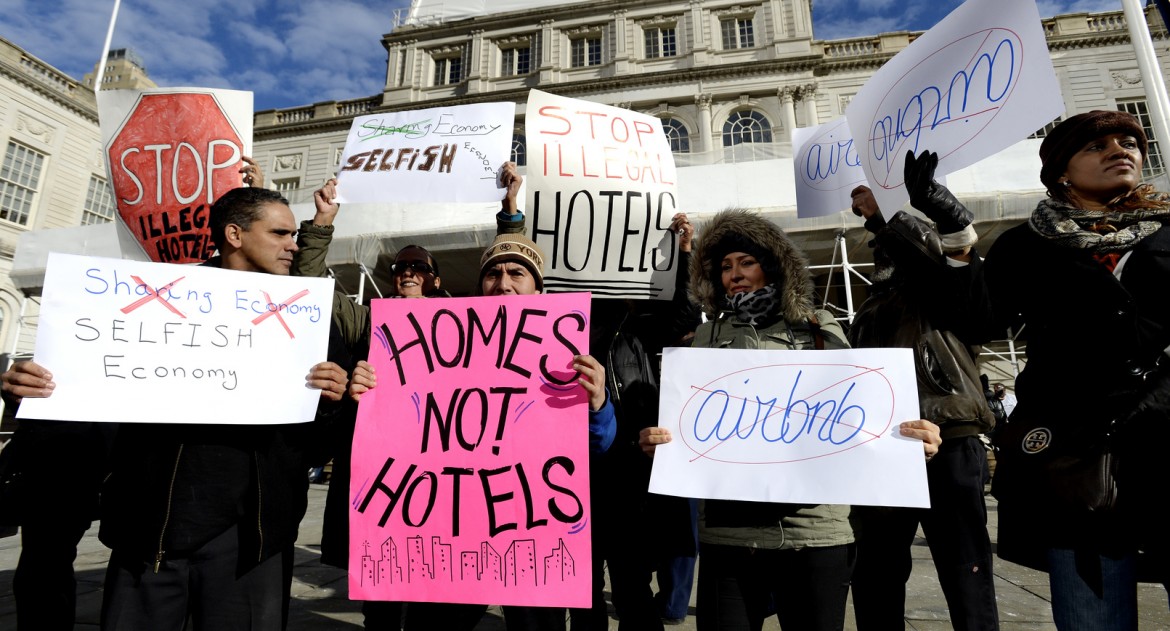Analysis
Italian cities increasingly in the hands of commercial Airbnb hosts
The historic centers of cities across Europe are being monopolized by businesses that rent out multiple units or whole apartment buildings on Airbnb. Private hosts and local residents feel the squeeze.

How many Airbnb listings in Italy are run by businesses? Airbnb claims they are unable to distinguish between listings by businesses and those put up by private persons who are renting out their room or house for a little extra income, and they are refusing to publish their data.
However, this distinction is critical for understanding the platform’s impact on cities—not to mention the fact that it is mandated by law.
Italy has the third-largest market on Airbnb, and in the absence of regulations, short-term holiday rentals have boomed in recent years, with cities turning more and more into tourist theme parks. In the historical centers of major Italian cities, significant percentages of the entire housing stock is listed on Airbnb. The proportion ranges from 8 percent in Rome to 18 percent in Florence, according to a recent study conducted by the University of Siena. Airbnb’s impact on the residential market is caused by the large number of businesses who are each renting out several accommodations for long periods throughout the year, thus removing them from the residential market.
Used in this manner, the platform has become a tool for the concentration of profits—about two-thirds of all earnings made on the site, according to the University of Siena study—into the hands of a few business owners who run many listings at once, mostly for whole apartments.
Using data extracted by Inside Airbnb, it is possible to estimate the number of commercial listings in major Italian cities based on their utilization rate. If we use the definition adopted by many European cities and by the local administration of San Francisco, which was the first to study the impact of Airbnb with the help of data from Inside Airbnb, a listing is considered a “commercial listing” if it is booked for more than 60 days per year.
Another indication of a business operating on Airbnb is the number of listings put up by a single host. The adjacent graph shows this data together with the percentage of Airbnb listings out of the total housing stock, and the percentage that consists of whole apartments. The data can be found on the Inside Airbnb website.
In Italy, where regulating a particular phenomenon mostly means taxing it, the measures taken by the government concerning Airbnb have so far been limited to the introduction of a flat tax on short-term non-business rentals for less than 30 days.
This measure is likely to further promote the concentration of profits into the hands of businesses acting as hosts. Even more, Airbnb has appealed against the tax decision, and even though the government has rejected its appeal, it has so far failed to pay the €130 million due in taxes. According to the head of the Federalberghi hotel business association, Alessandro Nucara, “it’s incomprehensible why they haven’t been hit with fines yet.”
Furthermore, an implementation decree should have been issued within 90 days of the entry into force of the tax law, which should have defined the criteria (such as the number of listings by a single host and the time rented) according to which business-run listings would be identified and taxed accordingly. There were calls for this decree in February during the state-regions conference, but nothing has been heard of it since.
Many European cities have regulated short-term non-business rentals, limiting, for instance, total rental days and the number of listings per host, limiting the rental of whole apartments to those where the host is registered as residing, issuing permits (and limiting their number) according to the concentration of listings in a particular area, or mandating a registration system on the platforms using license numbers, as well as requiring the platforms to provide the relevant data.
In any case, Airbnb has until the end of August to submit its proposals to the European Commission on how it will enter into compliance with the European regulations on competition and consumer protection.
Among the problems it will have to address is its failure to distinguish between occasional private hosts and business activities.
Originally published at https://ilmanifesto.it/airbnb-proliferazione-di-affitti-brevi-le-citta-italiane-sempre-piu-nelle-mani-degli-host/ on 2018-09-05
